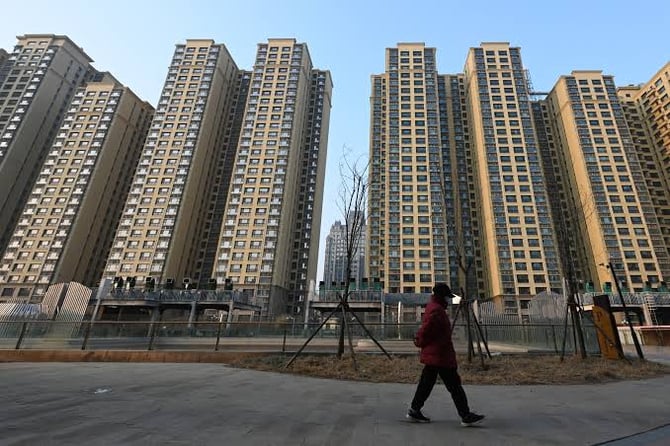The Collapse of Evergrande: A Blow to China's Economy

In a significant development for China's financial sector, a Hong Kong court mandated the liquidation of China Evergrande Group, a major property developer. This decision, announced on a Monday, could have serious repercussions for China's already fragile financial markets. Evergrande, with over $300 billion in liabilities, is the world's most indebted developer and its default in 2021 had already caused turmoil in the property sector.
The judge presiding over the case determined that Evergrande's inadequate communication and resolution efforts over 18 months necessitated this drastic step. Prior to the ruling, Evergrande's stock plummeted by as much as 20%, and trading was subsequently suspended for the company and its affiliates.
The developer, holding assets worth $240 billion, faces a liquidation process that could destabilize Chinese capital and property markets, which are already facing challenges. China's economy is currently underperforming, with its property market witnessing its worst period in nine years and the stock market at near five-year lows. The liquidation could exacerbate these issues, hindering policy-makers' attempts to revive growth.
What Does This Mean for Me?
Evergrande had been negotiating a $23 billion debt restructuring plan for almost two years. These efforts were derailed when its founder, Hui Ka Yan, faced an investigation for suspected crimes. The liquidation petition, initiated in June 2022 by investor Top Shine against Evergrande unit Fangchebao, cited a failure to repurchase shares as agreed. Following multiple adjournments, the final ruling came after a decision was due in a December hearing, marking another blow to China's economy amidst ongoing developer bankruptcies since mid-2021.
More News
.webp)
Japan’s Rate Shift Is Rippling Through Global Bond Markets
2 weeks ago

China’s Growth Engine Stalls as Consumers and Investors Pull Back
2 weeks ago

Egypt’s Recovery Gains Traction as Household Pressure Lingers
3 weeks ago

OECD Warns AI and Tariffs Will Test the Global Economy
1 month ago

Zero Tariffs, Higher Drug Bills as US and UK Reset Pharma Trade
1 month ago

Catastrophe Bonds Go Global as Climate Risk Meets Yield Hunting
1 month ago
.webp)
Canada Shields Steel and Lumber Industries From Tariffs
1 month ago

Trump Drops Selected Tariffs in Response to Inflation Pressures
1 month ago